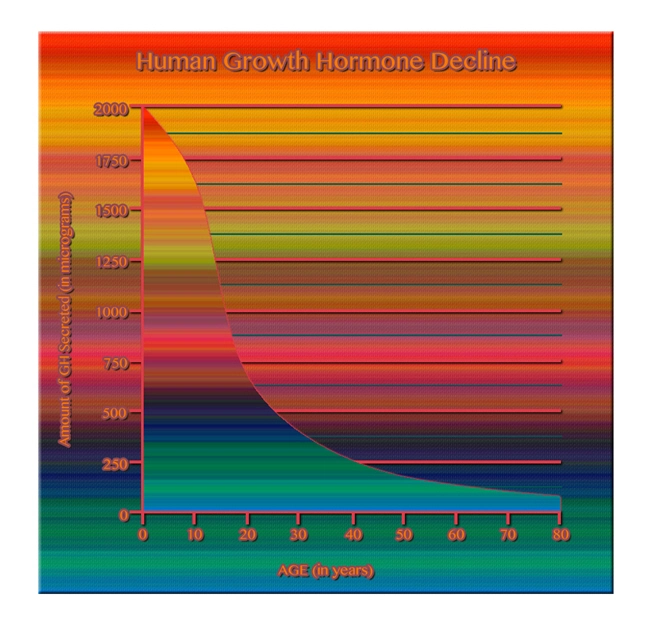
Introduction
Escitalopram, a widely prescribed selective serotonin reuptake inhibitor (SSRI), is commonly used to treat depression and anxiety disorders. While generally well-tolerated, it has been linked to a rare but serious side effect: induced mania. This article delves into the specifics of escitalopram-induced mania, focusing on its implications for American males.
Understanding Escitalopram-Induced Mania
Mania is characterized by an abnormally elevated mood, increased energy, and often, impulsive behavior. While mania is typically associated with bipolar disorder, it can also be triggered by certain medications, including escitalopram. Escitalopram-induced mania is a paradoxical reaction, as the drug is intended to stabilize mood rather than cause extreme mood swings.
Prevalence and Risk Factors
Escitalopram-induced mania is relatively rare, with studies suggesting an incidence rate of less than 1% among users. However, certain factors may increase the risk. American males with a personal or family history of bipolar disorder are at a higher risk. Additionally, younger males and those taking higher doses of escitalopram may be more susceptible to this side effect.
Clinical Presentation
The onset of escitalopram-induced mania can be sudden and dramatic. Symptoms may include increased talkativeness, racing thoughts, decreased need for sleep, and engaging in high-risk activities. These symptoms can be distressing and may lead to significant impairment in daily functioning. It is crucial for healthcare providers to recognize these signs early to manage the condition effectively.
Diagnostic Challenges
Diagnosing escitalopram-induced mania can be challenging, as its symptoms may be mistaken for a worsening of the underlying psychiatric condition. A thorough clinical evaluation, including a detailed medical history and assessment of medication use, is essential. Healthcare providers should consider the possibility of medication-induced mania in patients who present with manic symptoms after starting escitalopram.
Management and Treatment
Upon suspicion of escitalopram-induced mania, immediate discontinuation of the drug is often necessary. However, this should be done under medical supervision to manage withdrawal symptoms and prevent a potential worsening of the underlying condition. In some cases, mood stabilizers or antipsychotic medications may be prescribed to control manic symptoms.
Long-Term Implications
The long-term implications of escitalopram-induced mania can vary. Some individuals may experience a single episode and return to their baseline mood after discontinuing the medication. Others may require ongoing treatment for bipolar disorder if the episode uncovers an underlying susceptibility. Regular follow-up with a psychiatrist is crucial to monitor mental health and adjust treatment as needed.
Preventive Measures
Preventing escitalopram-induced mania involves careful patient selection and monitoring. Healthcare providers should assess patients for risk factors before prescribing escitalopram. Close monitoring during the initial weeks of treatment can help detect early signs of mania, allowing for timely intervention. Educating patients about the potential side effects and the importance of reporting any unusual symptoms is also essential.
Conclusion
Escitalopram-induced mania, though rare, is a serious side effect that American males should be aware of, especially those with a history of mood disorders. Early recognition and appropriate management are key to minimizing its impact. As research continues, a better understanding of the mechanisms behind this phenomenon may lead to improved prevention and treatment strategies. For now, vigilance and open communication between patients and healthcare providers remain the best defense against this challenging side effect.
Contact Us Today For A Free Consultation
Dear Patient,
Once you have completing the above contact form, for security purposes and confirmation, please confirm your information by calling us.
Please call now: 1-800-380-5339.
Welcoming You To Our Clinic, Professor Tom Henderson.

- Exploring the Relationship Between Escitalopram and Weight Changes in American Males [Last Updated On: February 16th, 2025] [Originally Added On: February 16th, 2025]
- Exploring the Therapeutic Potential of Escitalopram for Panic Disorders in American Males [Last Updated On: February 24th, 2025] [Originally Added On: February 24th, 2025]
- Unveiling the Mechanism: Understanding the Role of Escitalopram in Altering Serotonin Levels in the Brain [Last Updated On: March 2nd, 2025] [Originally Added On: March 2nd, 2025]
- Exploring the Cognitive Effects of Escitalopram: Impacts on Memory, Attention, and Executive Function in Mood Disorders [Last Updated On: March 3rd, 2025] [Originally Added On: March 3rd, 2025]
- Escitalopram Use During Pregnancy: Benefits and Risks Explored [Last Updated On: March 4th, 2025] [Originally Added On: March 4th, 2025]
- Understanding Escitalopram: Experiences of American Males with Depression and Anxiety Treatment [Last Updated On: March 5th, 2025] [Originally Added On: March 5th, 2025]
- Understanding Escitalopram's Role in Treating Adolescent Depression and Anxiety [Last Updated On: March 6th, 2025] [Originally Added On: March 6th, 2025]
- The Pharmacological Profile of Escitalopram: A Potent SSRI for Depression and Anxiety [Last Updated On: March 7th, 2025] [Originally Added On: March 7th, 2025]
- Escitalopram's Efficacy in Treating OCD Among American Males: Benefits and Considerations [Last Updated On: March 8th, 2025] [Originally Added On: March 8th, 2025]
- Safely Withdrawing from Escitalopram: A Guide for American Men on SSRI Discontinuation [Last Updated On: March 8th, 2025] [Originally Added On: March 8th, 2025]
- Escitalopram: Efficacy and Side Effects in Antidepressant Therapy for American Men [Last Updated On: March 9th, 2025] [Originally Added On: March 9th, 2025]
- Exploring Escitalopram: Key Drug Interactions to Avoid for American Males [Last Updated On: March 12th, 2025] [Originally Added On: March 12th, 2025]
- Exploring the Impact of Escitalopram on Mental Health in American Males: A Nursing Perspective [Last Updated On: March 13th, 2025] [Originally Added On: March 13th, 2025]
- Exploring the Safety of Escitalopram in Elderly American Males: Essential Precautions [Last Updated On: March 15th, 2025] [Originally Added On: March 15th, 2025]
- Escitalopram Pharmacokinetics in American Males: Optimizing Treatment for Depression and Anxiety [Last Updated On: March 18th, 2025] [Originally Added On: March 18th, 2025]
- Escitalopram's Impact on American Males: Case Studies in Mental Health Improvement [Last Updated On: March 18th, 2025] [Originally Added On: March 18th, 2025]
- Escitalopram Efficacy in Treating PTSD Among American Males: Benefits and Considerations [Last Updated On: March 18th, 2025] [Originally Added On: March 18th, 2025]
- Escitalopram's Role in Treating Social Phobia in American Males: Efficacy and Considerations [Last Updated On: March 18th, 2025] [Originally Added On: March 18th, 2025]
- Escitalopram Overdose: Symptoms, Actions, and Prevention Strategies [Last Updated On: March 18th, 2025] [Originally Added On: March 18th, 2025]
- Strategies to Boost Escitalopram Adherence in American Males: Education, Technology, and Support [Last Updated On: March 18th, 2025] [Originally Added On: March 18th, 2025]
- Escitalopram: Mechanism, Efficacy, and Safety for American Males with Depression and Anxiety [Last Updated On: March 19th, 2025] [Originally Added On: March 19th, 2025]
- Escitalopram: American Men's Experiences with Depression and Anxiety Treatment [Last Updated On: March 20th, 2025] [Originally Added On: March 20th, 2025]
- Escitalopram's Impact on Sleep: Insights for American Male Patients [Last Updated On: March 21st, 2025] [Originally Added On: March 21st, 2025]
- Escitalopram's Journey: From Lab to Lifeline for American Males' Mental Health [Last Updated On: March 21st, 2025] [Originally Added On: March 21st, 2025]
- Monitoring Liver Function in American Males on Escitalopram: Essential Guidelines and Practices [Last Updated On: March 21st, 2025] [Originally Added On: March 21st, 2025]
- Escitalopram's Minimal Impact on Blood Pressure in American Males: A 12-Week Study [Last Updated On: March 21st, 2025] [Originally Added On: March 21st, 2025]
- CBT and Escitalopram: A Synergistic Approach to Men's Mental Health in America [Last Updated On: March 22nd, 2025] [Originally Added On: March 22nd, 2025]
- Guide to Transitioning from Fluoxetine to Escitalopram for American Men [Last Updated On: March 22nd, 2025] [Originally Added On: March 22nd, 2025]
- Escitalopram's Impact on Co-morbid Physical Disorders in American Males: Benefits and Risks [Last Updated On: March 23rd, 2025] [Originally Added On: March 23rd, 2025]
- Escitalopram: A Promising Treatment for Depression in American Men During Andropause [Last Updated On: March 23rd, 2025] [Originally Added On: March 23rd, 2025]
- Escitalopram Use and Interactions for American Males: A Comprehensive Guide [Last Updated On: March 23rd, 2025] [Originally Added On: March 23rd, 2025]
- Escitalopram: Enhancing Mental Health in American Men - Uses, Effects, and Considerations [Last Updated On: March 23rd, 2025] [Originally Added On: March 23rd, 2025]
- Escitalopram's Role in Enhancing Palliative Care for American Males [Last Updated On: March 24th, 2025] [Originally Added On: March 24th, 2025]
- Escitalopram: A Key Treatment for Major Depressive Disorder in American Males [Last Updated On: March 24th, 2025] [Originally Added On: March 24th, 2025]
- Escitalopram: Enhancing Serotonin and Neuroplasticity in American Males' Mental Health Treatment [Last Updated On: March 24th, 2025] [Originally Added On: March 24th, 2025]
- Escitalopram: Effective Treatment for Body Dysmorphic Disorder in American Males [Last Updated On: March 24th, 2025] [Originally Added On: March 24th, 2025]
- Escitalopram's Impact on Anxiety in American Males: Efficacy and Considerations [Last Updated On: March 24th, 2025] [Originally Added On: March 24th, 2025]
- Escitalopram: Effective GAD Treatment for American Males in Comprehensive Care [Last Updated On: March 24th, 2025] [Originally Added On: March 24th, 2025]
- Escitalopram Safety and Liver Disease in American Males: Pharmacokinetics and Clinical Guidelines [Last Updated On: March 25th, 2025] [Originally Added On: March 25th, 2025]
- Escitalopram: Key Insights for Managing Depression and Anxiety in American Males [Last Updated On: March 25th, 2025] [Originally Added On: March 25th, 2025]
- Escitalopram: A Promising Treatment for Seasonal Affective Disorder in American Men [Last Updated On: March 25th, 2025] [Originally Added On: March 25th, 2025]
- Escitalopram Interactions with Antidepressants: Risks and Management in American Males [Last Updated On: March 25th, 2025] [Originally Added On: March 25th, 2025]
- Escitalopram's Future in U.S. Psychiatry: Innovations for American Males' Mental Health [Last Updated On: March 25th, 2025] [Originally Added On: March 25th, 2025]
- Escitalopram in Geriatric Psychiatry: Efficacy, Safety, and Dosing for Older American Males [Last Updated On: March 25th, 2025] [Originally Added On: March 25th, 2025]
- Escitalopram in Pediatric Males: Safety, Side Effects, and Monitoring Guidelines [Last Updated On: March 26th, 2025] [Originally Added On: March 26th, 2025]
- Escitalopram: Managing Sexual Side Effects in American Males [Last Updated On: March 26th, 2025] [Originally Added On: March 26th, 2025]
- Escitalopram's Role in Managing MDD Among American Males: Efficacy and Considerations [Last Updated On: March 26th, 2025] [Originally Added On: March 26th, 2025]
- Escitalopram Use and Serotonin Syndrome Risks in American Males: A Comprehensive Guide [Last Updated On: March 26th, 2025] [Originally Added On: March 26th, 2025]
- Escitalopram's Impact on BPD Symptoms in American Males: A Pilot Study [Last Updated On: March 26th, 2025] [Originally Added On: March 26th, 2025]
- Escitalopram: Enhancing Cognitive Function in American Men [Last Updated On: March 26th, 2025] [Originally Added On: March 26th, 2025]
- Escitalopram's Long-Term Effects on American Males: Benefits, Risks, and Alternatives [Last Updated On: March 26th, 2025] [Originally Added On: March 26th, 2025]
- Escitalopram: A Journey to Recovery from Depression in American Men [Last Updated On: March 27th, 2025] [Originally Added On: March 27th, 2025]
- Escitalopram's Efficacy in Treating Post-Stroke Depression in American Males: A Review [Last Updated On: March 27th, 2025] [Originally Added On: March 27th, 2025]
- Escitalopram as Adjunctive Therapy for Bipolar Disorder in American Males [Last Updated On: March 27th, 2025] [Originally Added On: March 27th, 2025]
- Escitalopram and Alcohol: Risks and Guidelines for American Males [Last Updated On: March 27th, 2025] [Originally Added On: March 27th, 2025]
- Escitalopram's Role in Treating Eating Disorders Among American Males [Last Updated On: March 27th, 2025] [Originally Added On: March 27th, 2025]
- Escitalopram: A Promising Therapy for Neuropathic Pain in American Males [Last Updated On: March 27th, 2025] [Originally Added On: March 27th, 2025]
- Escitalopram's Efficacy in Treating Agoraphobia Among American Males: A Comprehensive Review [Last Updated On: March 28th, 2025] [Originally Added On: March 28th, 2025]
- Escitalopram: Managing Chronic Depression in American Males - Efficacy and Considerations [Last Updated On: March 28th, 2025] [Originally Added On: March 28th, 2025]
- Escitalopram's Impact on Heart Health in American Males: Benefits and Risks [Last Updated On: March 29th, 2025] [Originally Added On: March 29th, 2025]
- Escitalopram: Key Insights for American Males on Depression and Anxiety Treatment [Last Updated On: March 29th, 2025] [Originally Added On: March 29th, 2025]
- Escitalopram's Impact on Cognitive Skills in American Males: A Medical Examination [Last Updated On: March 29th, 2025] [Originally Added On: March 29th, 2025]
- Escitalopram: Enhancing Serotonin for Mood Disorder Treatment in American Males [Last Updated On: March 30th, 2025] [Originally Added On: March 30th, 2025]
- Escitalopram's Impact on Depression in American Male Adolescents: Efficacy and Safety [Last Updated On: March 30th, 2025] [Originally Added On: March 30th, 2025]
- Escitalopram's Efficacy and Management in Treating Dysthymia for American Males [Last Updated On: March 31st, 2025] [Originally Added On: March 31st, 2025]
- Escitalopram's Impact on Autonomic Nervous System in American Males: Benefits and Side Effects [Last Updated On: April 1st, 2025] [Originally Added On: April 1st, 2025]
- Optimizing Escitalopram Dose Titration for American Males: A Medical Perspective [Last Updated On: April 1st, 2025] [Originally Added On: April 1st, 2025]
- Escitalopram's Role in Managing PMDD: Efficacy, Mechanism, and Considerations for American Males [Last Updated On: April 2nd, 2025] [Originally Added On: April 2nd, 2025]
- Escitalopram's Potential in Treating Postpartum Depression in American Males [Last Updated On: April 5th, 2025] [Originally Added On: April 5th, 2025]
- Escitalopram and Suicide Risk in Adolescent Males: A Critical Analysis [Last Updated On: April 6th, 2025] [Originally Added On: April 6th, 2025]
- Escitalopram Enhances Quality of Life in American Men with Depression: A Systematic Review [Last Updated On: April 6th, 2025] [Originally Added On: April 6th, 2025]
- Genetic Factors Influencing Escitalopram Response in American Males: A Pharmacogenomic Overview [Last Updated On: April 9th, 2025] [Originally Added On: April 9th, 2025]
- Escitalopram: Managing Side Effects in American Males for Better Mental Health [Last Updated On: April 9th, 2025] [Originally Added On: April 9th, 2025]
- Escitalopram: Effective SSRI for Depression and Anxiety in American Men [Last Updated On: April 9th, 2025] [Originally Added On: April 9th, 2025]
- Switching from Citalopram to Escitalopram: A Guide for American Males [Last Updated On: April 9th, 2025] [Originally Added On: April 9th, 2025]
- Managing Escitalopram Withdrawal: Strategies for American Males [Last Updated On: April 10th, 2025] [Originally Added On: April 10th, 2025]
- Escitalopram's Role in Treating Body Image Disorders in American Males [Last Updated On: April 11th, 2025] [Originally Added On: April 11th, 2025]
- Escitalopram and Psychotherapy: A Dual Approach for American Men's Mental Health [Last Updated On: April 11th, 2025] [Originally Added On: April 11th, 2025]
- Escitalopram: Effective SSRI for MDD and GAD in American Males [Last Updated On: April 12th, 2025] [Originally Added On: April 12th, 2025]
- Escitalopram Use in Diabetic American Males: Effects, Management, and Lifestyle Tips [Last Updated On: April 15th, 2025] [Originally Added On: April 15th, 2025]









